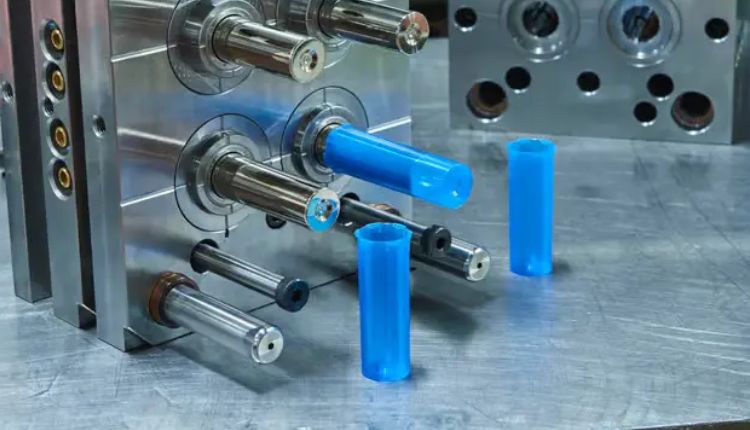Designing and manufacturing durable, high-strength plastic components requires a partner who can meet your technical demands. For parts with thick walls, intricate geometries, or critical performance needs, specialized thick-walled injection molders are essential. Their expertise, advanced tooling, and process knowledge can improve quality, cut costs, and speed up production. Engaging a specialist early can prevent costly rework, delays, or part failures, ensuring your project’s success.
Understanding the Challenges of Thick-Walled Parts
Thick-walled components differ from standard injection-molded parts due to their unique design and function. With walls over 4 mm thick, they are made for structural or functional roles in tough environments. Common uses include industrial machinery, heavy equipment, electrical enclosures, and high-impact tools, where durability is key.
The added thickness can cause:
- Uneven cooling
- Internal voids
- Surface sink marks
- Warping or dimensional instability
Effectively managing these risks requires expertise in mold flow, cooling strategies, and material behavior—skills that thick-walled injection molders specialize in.
When Project Complexity Demands Specialized Knowledge
Not all molding facilities are equipped to handle thick-walled designs. Here are some scenarios where a niche molder becomes the right choice:
1. Critical Structural Requirements
When your component needs to handle heavy loads, resist impacts, or perform in extreme conditions, there’s little room for error. Working with a specialized molder provides expert guidance on material selection, processing, and mold design, ensuring high performance and part integrity.
2. Tight Tolerance Expectations
Thick-walled parts are prone to shrinkage and warping, making tight tolerances harder to achieve. Partnering with an experienced injection molder ensures optimized gate locations, pressure settings, and cycle times for precise, consistent dimensions—even with complex geometries.
3. Unique or Complex Mold Designs
Parts with complex undercuts, deep ribs, or multiple cores need molds that are strong and thermally efficient. Specialized molders use advanced tools and simulation software to design and test molds, ensuring precision and reliability from the start.
Material Selection for High-Performance Applications
The material choice is just as crucial as the design, especially for thick-walled parts. These components need a resin that flows well into the mold, cures without voids, and maintains mechanical integrity over time. An experienced thick-walled injection molder can help you select the right material based on factors like load-bearing needs, temperature or chemical resistance, and product lifespan. They may suggest reinforced or filled resins for added strength and reduced shrinkage. With expertise in high-performance thermoplastics and thick-wall manufacturing, specialized molders can help you make confident, cost-effective decisions.
Process Control Makes or Breaks Quality
The thicker the part, the more sensitive it becomes to process variables. Molders that specialize in standard or thin-walled parts might struggle with:
- Cycle time management
- Mold temperature control
- Packing pressure adjustment
- Gate sizing and positioning
A thick-walled injection molder knows that small parameter changes can significantly affect part quality. Their production lines are designed for longer cooling times and often include specialized temperature control or molding equipment for large parts.
Cost-Efficiency Through Reduced Waste and Rework
Although niche molders may charge more upfront, they often reduce total costs over the lifecycle of a project. Their ability to get the part right the first time results in:
- Fewer failed shots
- Less material waste
- Lower rates of returned or rejected parts
- Faster approvals and time-to-market
For critical components, avoiding a failed launch or field failure far outweighs the minor cost difference in tooling or hourly rates.
Ensuring Long-Term Partnership Value
Choosing a specialized thick-walled injection molder means gaining a partner in product development. From design feedback and prototyping to testing and post-production, these experts support every stage. They stay involved as your product evolves, offering improvements and scalable solutions. Whether launching a new product or enhancing an existing one, the right molder turns complex challenges into production success.
Conclusion
Not every molding project needs a specialized partner, but for thick, durable, high-performance plastic parts, expertise is essential. A skilled thick-walled injection molder can reduce risks, improve quality, and simplify production. Choosing the right partner early ensures your product meets and exceeds performance expectations, even in tough environments.






